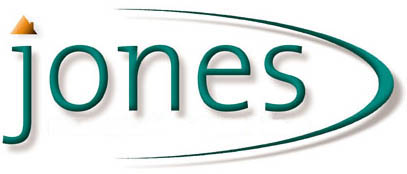What is a High Loan to Value Mortgage ?
A mortgage is simply a long term loan which uses the property as security until the loan is repaid in full.
The loan to value (LTV) is the amount you choose to borrow based on the purchase price. With a 95% mortgage, you would pay a 5% deposit and with a 100% mortgage, you would not pay a deposit.
Lenders are limited and also criteria is more strict with higher loan to value mortgages due to the increased risk associated with this type of lending.
The associate interest rate and possibly mortgage application fees can often be higher with this type of mortgage.
Secondly, you may also be asked to have additional security or additional borrowers to aid your mortgage application. Examples of this additional security can be 'family offset' or 'guarantor' mortgages whereby family members will provide their savings or property as additional security to allow you to borrow 100% of the property purchase price.
We would advise making an appointment with your family who will act as guarantors with our office by calling 01642 885500 or click here to request a call back
As the property is used as security, it is important that you maintain your monthly mortgage payments, otherwise the property may be repossessed.
Lenders will allow you to spread the Mortgage payments over a period that is affordable to you, typically 25 years. It is important to ensure that the term does not extend into retirement.
The longer a Mortgage is repaid over, the greater the cost to the borrower over the term.
As this is generally the greatest expenditure to a family household, it is vital that the mortgage is regularly reviewed to ensure that the product matches your changing lifestyle and also to ensure that you are not paying more than you should.
Risks of 100% mortgages
The largest risk associated with all types of high loan-to-value mortgages is when property prices start to decline. Any fall in property prices is likely to lead to negative equity, in other words, you may owe more on your mortgage than the property is worth. This can lead to difficulties should you need to sell the property.
How do Mortgages Work ?
The Mortgage Loan and monthly repayments are simply split into two parts:
1. The capital (the loan)
2. The interest (the lender's charges for the loan)
You will pay interest on the balance of the loan outstanding.
What are the different types of Mortgages ?
The way in which Mortgages are repaid is split into two types:
1.
Repayment Mortgage(Capital & Interest). Each month you are paying off interest and capital. Initially, most of your monthly payment is interest, but as the balance reduces, your interest lessens and the amount of capital you are repaying increases. (See more information on offset and daily interest).
2.
Interest Only. Each month you will pay the lender the interest payment and none of the capital. At the end of the mortgage term, you will need to repay the capital. You will need to plan for repaying this large amount of capital with a suitable investment vehicle.
What kind of 'deals' are offered with Mortgages ?
Once you have taken professional advice on the best repayment method, then it is time to find a 'deal'. The Mortgage Market offers thousands of Mortgage products and the choice can be confusing. A professional adviser/broker will assess your needs and guide you on the best course of action. At Jones Estate Agents, we are Mortgage Brokers with access to all UK lenders, and offer some products that are only available through professional brokers and not to the Public directly. Below is a brief description of the different types of products on offer.
What happens when my Mortgage Deal ends ?
After your 'deal' has ended, you would normally return to the Lender's Standard Variable rate (SVR). As professional brokers, our job is to maintain contact with you throughout your mortgage term and review the product shortly before your deal expires with a view to finding you another product (subject to your circumstances at that time).
Early Redemption Penalty
If you try to end your mortgage 'deal' earlier that the product allows, you can be HEAVILY penalised. It is important to ensure you are aware of the exit penalties associated with mortgages. These are generally called Early Redemption Penalties (ERP). As professional Mortgage Brokers, we will try to understand your future requirements, and again, tailor make our recommendations to fit with your changing lifestyle.
These ERP's can typically be charged if you:
■ Pay off whole or an additional part of the original loan before the end of the initial term.
■ Sell your property
■ Move home, unless the product is portable. You may be required to move your current product to your new purchase.
The vast array of products/deals are packaged in many different ways including:
Fixed Rates
A fixed rate can give you security in knowing exactly what your payments will be for a set period of time. Your payments will not fluctuate unlike other types of mortgage products.
A typical fixed rate will vary from around 2 to 5 years and can be particularly useful if you have other short term outgoings (eg. loans) that may be repaid shortly and you wish to keep costs to a minimum.
The downside to this type of product is if rates drop, you would not take advantage of falling interest rates and thereby reduced monthly payments.
Tracker Rates
A tracker rate is a variable rate mortgage that follows the Bank of England Base rate with an additional marginal rate added. Eg. Bank of England + 1%.
This type of product can take advantage of falling interest rates, but this also means that rising rates will result in increased monthly mortgage payments. You should ensure you can budget for increasing rate rises. This type of mortgage should be reviewed regularly to ensure you are protected against possible rate rises.
Discount Rate Mortgages
Again, this is a variable rate mortgage. The term 'discount' is used to describe the discount offered by the Lender's Standard Variable Rate(SVR). This is not to be confused with the Bank of England base Rate although the rises and falls of Lender's SVRs closely match the Bank of England Base Rate.
As with the Tracker above, the rise and fall of interest rates will affect your monthly mortgage payments.
Capped Rate Mortgage
Again, this is a variable rate mortgage but with a difference. As rates rise, they will have a 'ceiling' rate. In other words if you have a capped rate of say 5%, if rates are 4.5% currently, your monthly payment will be based on interest of 4.5%, but if rates start to rise to say 7%, your monthly payment will also rise, but the rate of interest will stop at the ceiling of 5%. You can therefore take advantage of falling rates but with some additional security that it will not rise above the ceiling rate.
Standard Variable Rates
A variable rate Mortgage based on the Lender's own base rate. This differs between different lenders. This type of product typically does not have any ERPs and can be useful if the mortgage is likely to be repaid in whole or part shortly or if you are likely to switch lenders or possibly sell your property.
Off Set Mortgages
An off-set mortgage simply links your mortgage with your savings. The savings balance is used to reduce the amount of interest charged on your mortgage.
For example. If you have a £100,000 mortgage paying an interest rate of 5% and have savings of £20,000 in the savings account with the same lender.
Where you would have been receiving a low rate of interest on your savings elsewhere, you would not be paying mortgage interest at 5% on the £20,000 held, thereby saving £1,000 of interest per annum !
Paying a lower level of interest each month, whilst maintaining your normal monthly payment can greatly reduce your mortgage terms and therefore interest over the duration of your mortgage whilst still having the flexibility of access to your savings !
This type of Mortgage is particularly aimed at those customers that have large pots of savings and want to maximise the benefit. The downside is that often rates are not quite as attractive, so again it is important to allow a Professional Broker to search the market on your behalf.
Cash Back Mortgage
A variable rate mortgage. Although many of the above products may offer some element of cash back, this refers to the 'Discount' that may have been offered, given to you as an alternative at the commencement of the mortgage as a 'cash sum'. You will generally pay the Lender's SVR and be subject to an ERP. The benefit of this may be that you can afford your deposit and the normal monthly mortgage payment, but the up-front cash may be useful for say, renovating the property thereby adding additional value to the property.
Other Incentives
In addition to the above products, Lenders may also entice you with other incentives. As Professional Advisers, it is our job to analyse all of the incentives and carefully calculate the very best deal to match your personal circumstances. These can include(but not limited to):
■ A smaller element of Cash Back
■ Refund of Survey Fees
■ Reduced fee for Home Buyers Report
■ Free Legals (often offered with remortgages)
■ Banking facilities
Get Impartial Mortgage and Property Advice


